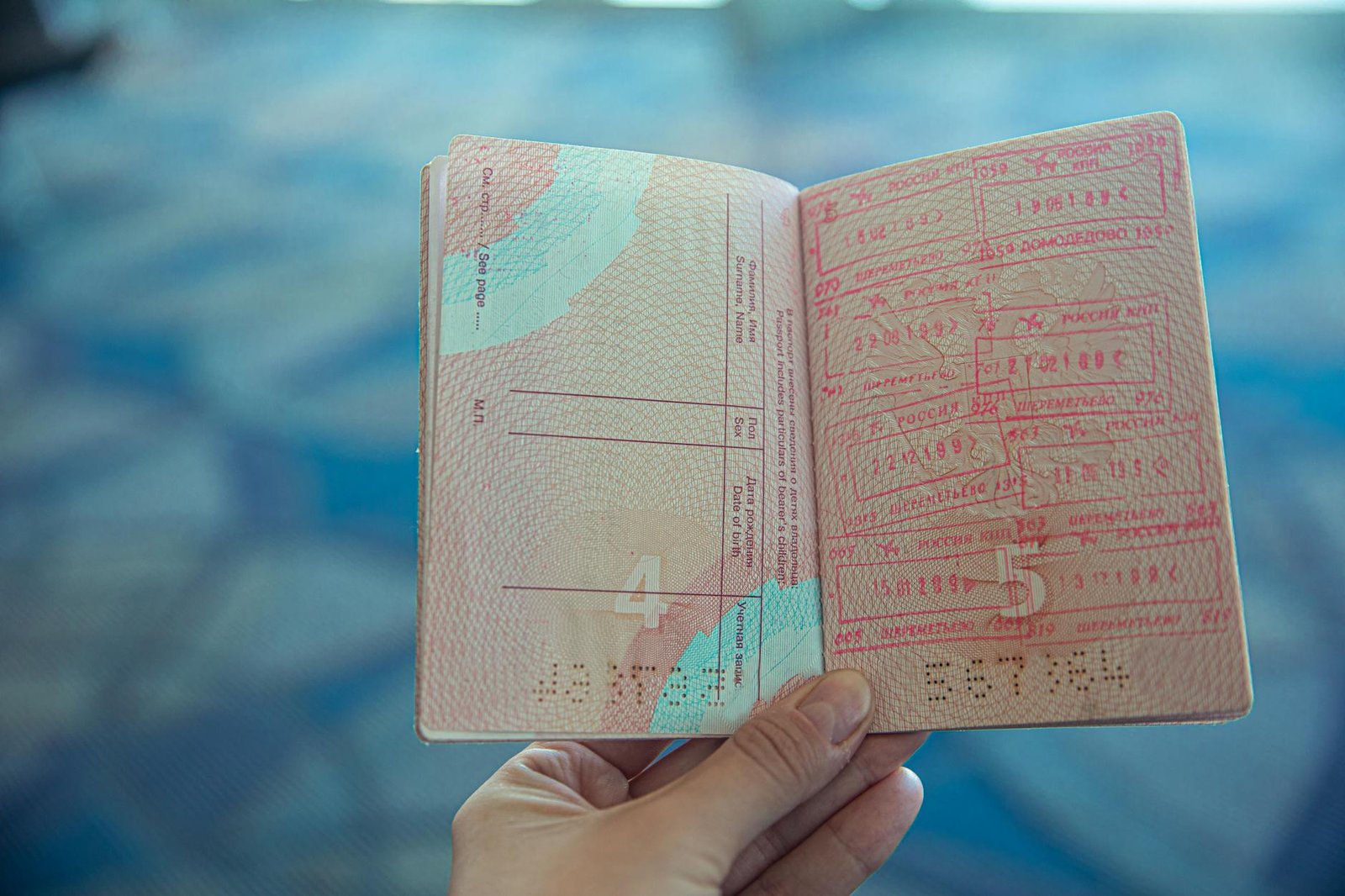Digital nomads are flocking to Vietnam, and it’s easy to see why this Southeast Asian gem has become the hotspot for remote workers across the globe. If you’re a location-independent professional tired of overpriced Western cities or looking for your next base in Asia, Vietnam offers the perfect blend of affordability, connectivity, and culture that makes it ideal for the nomadic lifestyle.
This guide is for remote workers, freelancers, and entrepreneurs who want to stretch their budget while maintaining productivity and building meaningful connections. Vietnam delivers on all fronts – from bustling cities like Ho Chi Minh City and Hanoi to coastal towns like Da Nang that cater specifically to the growing Vietnam digital nomads community.
We’ll explore how Vietnam’s incredibly low cost of living can help you save thousands compared to other popular nomad destinations, while still enjoying excellent food, comfortable accommodation, and modern amenities. You’ll also discover why the country’s internet speed Vietnam nomads rely on has improved dramatically, making remote work Vietnam a viable option even for bandwidth-heavy tasks.
Plus, we’ll dive into the vibrant nomad communities Vietnam has fostered, where you can network with like-minded professionals and find your tribe in cities that understand the digital nomad lifestyle.
Affordable Living Costs That Maximize Your Budget

Housing Options Under $500 Per Month in Major Cities
Vietnam cost of living digital nomads will be pleasantly surprised by the housing market. In Ho Chi Minh City, you can secure a modern studio apartment in District 1 for $300-400 monthly, complete with air conditioning, high-speed internet, and building amenities. Hanoi offers similar pricing, with trendy apartments in the Old Quarter ranging from $250-450 per month.
For those seeking luxury without breaking the bank, serviced apartments with housekeeping, gym access, and rooftop pools typically cost $400-500 monthly. Shared accommodations through co-living spaces drop costs even lower – expect to pay $150-250 for a private room in a shared apartment with fellow digital nomad Vietnam professionals.
Da Nang presents the best value proposition, where beachfront apartments rent for $200-350 monthly. The city’s growing expat community has created numerous housing options specifically designed for remote workers, featuring dedicated workspace areas and reliable internet connections.
Street Food and Local Dining for Under $3 Per Meal
Vietnamese street food culture makes eating well incredibly affordable for remote work Vietnam professionals. A hearty bowl of pho costs just $1.50-2.50, while banh mi sandwiches run $0.75-1.25 each. Com tam (broken rice) plates with grilled pork, egg, and vegetables typically cost $2-3 and provide substantial portions.
Local markets offer fresh fruit smoothies for $0.50-1.00, and Vietnamese coffee ranges from $0.75-1.50. Even sit-down restaurants serving traditional dishes like bun bo hue or cao lau rarely exceed $3-4 per meal.
Western food remains affordable too – pizza slices cost $1-2, and international cuisine at mid-range restaurants averages $5-8 per dish, still well below Western standards.
Transportation Costs 80% Lower Than Western Countries
Getting around Vietnam costs a fraction of Western transportation expenses. Motorbike taxis (xe om) charge $0.50-1.50 for short trips, while Grab rides across major cities typically cost $1-3. Monthly motorbike rentals run $30-50, including helmet and basic insurance.
Public buses cost just $0.25-0.50 per ride, and many digital nomad Vietnam communities use shared transportation apps that split costs among users. Domestic flights between major cities start at $30-50, making weekend exploration incredibly affordable.
Long-distance buses and trains offer comfortable travel options for under $10-20, perfect for exploring the country while maintaining your remote work schedule.
Co-working Spaces Starting at $50 Monthly
Vietnam’s co-working scene caters perfectly to digital nomads. Monthly memberships at professional spaces in Ho Chi Minh City and Hanoi start at $50-80, providing 24/7 access, high-speed internet, printing facilities, and networking events.
Premium co-working spaces like Toong, Dreamplex, and Start Network offer monthly plans for $80-120, featuring private phone booths, meeting rooms, and rooftop terraces. Many include free coffee, tea, and snacks throughout the day.
Day passes cost just $5-10, perfect for trying different locations before committing to monthly memberships. Most spaces host regular networking events, workshops, and social gatherings, helping nomad communities Vietnam members connect and collaborate.
Reliable Internet Infrastructure Across the Country

Fiber Optic Coverage in All Major Cities
Vietnam’s digital infrastructure has transformed dramatically over the past decade. Major cities like Ho Chi Minh City, Hanoi, Da Nang, and Nha Trang now boast comprehensive fiber optic networks that rival those found in developed nations. This robust infrastructure means digital nomads Vietnam can enjoy reliable, high-speed connections whether they’re working from a bustling cafe in District 1 or a beachside co-working space in Hoi An.
The government’s significant investment in telecommunications infrastructure has paid off. Even smaller cities like Can Tho and Vung Tau offer excellent fiber coverage, making remote work Vietnam viable across the entire country. Local providers like Viettel, VNPT, and FPT have aggressively expanded their networks, creating healthy competition that benefits users with better service and pricing.
Average Speeds of 50+ Mbps in Urban Areas
Speed tests consistently show that internet speed Vietnam nomads can expect ranges from 50-100 Mbps in urban areas, with many locations offering speeds exceeding 200 Mbps. These speeds easily handle video conferences, large file uploads, and streaming requirements that digital nomads depend on daily.
| City | Average Download Speed | Average Upload Speed |
|---|---|---|
| Ho Chi Minh City | 85 Mbps | 45 Mbps |
| Hanoi | 78 Mbps | 42 Mbps |
| Da Nang | 92 Mbps | 38 Mbps |
| Nha Trang | 67 Mbps | 35 Mbps |
Backup Connectivity Options and Mobile Hotspots
Smart nomads never rely on a single internet source. Vietnam’s mobile networks provide excellent backup options through 4G and increasingly available 5G coverage. Major carriers like Viettel, Mobifone, and Vinaphone offer affordable unlimited data plans perfect for mobile hotspots.
Portable WiFi devices are widely available for rent or purchase, giving you internet freedom wherever you go. Many nomads carry multiple SIM cards from different providers to ensure connectivity redundancy. Co-working spaces and cafes typically offer guest WiFi, creating multiple layers of backup connectivity.
24/7 Internet Cafes as Emergency Workspaces
Vietnam’s internet cafe culture provides an unexpected advantage for digital nomads. These facilities, locally called “quan net,” operate around the clock in most urban areas. While primarily gaming-focused, they offer emergency workspace solutions when your primary internet fails or you need immediate access to high-performance computers.
Modern internet cafes feature comfortable seating, air conditioning, and printing services. Rates typically run 10,000-20,000 VND per hour (roughly $0.40-0.80 USD), making them incredibly affordable backup options. Many have evolved into hybrid spaces offering both gaming and professional work environments, recognizing the growing demand from Vietnam digital nomads and remote workers.
Thriving Digital Nomad Communities and Networking

Active Facebook groups with thousands of members
Vietnam digital nomads have built some of the most active online communities you’ll find anywhere in Southeast Asia. The “Digital Nomads Vietnam” Facebook group boasts over 15,000 members who share everything from apartment hunting tips to visa updates and job opportunities. These groups serve as your first stop for insider knowledge, whether you’re looking for the best co-working spaces in District 1 or need recommendations for reliable internet providers in Canggu alternatives like Da Nang.
What makes these nomad communities Vietnam groups special is their responsiveness. Post a question about remote work Vietnam challenges at 9 AM, and you’ll have multiple helpful responses by lunch. Members regularly share real-time updates about internet outages, new visa regulations, and emerging neighborhoods that offer great value for digital nomad Vietnam lifestyles.
Regular meetups and co-working events
The social calendar for Vietnam digital nomads stays packed year-round. Ho Chi Minh City hosts weekly networking events at popular spots like Dreamplex and Toong, where remote workers gather to share projects and build professional connections. Da Nang’s nomad scene centers around beachside co-working sessions and sunset networking events that blend business with Vietnam’s stunning natural backdrop.
Monthly events like “Nomad Night” in Hanoi bring together freelancers, entrepreneurs, and remote employees from dozens of countries. These gatherings often feature guest speakers from successful local startups, creating valuable learning opportunities for those looking to expand their work remotely Asia networks.
Established expat communities in Ho Chi Minh and Hanoi
Ho Chi Minh City’s District 1 and District 2 have become magnets for international remote workers, creating established expat enclaves where English flows as freely as Vietnamese coffee. The Thao Dien area in District 2 particularly attracts digital nomads seeking a quieter alternative to the city center while maintaining easy access to modern amenities and reliable internet infrastructure.
Hanoi’s Old Quarter and Tay Ho districts offer a more traditional Vietnamese experience while still providing the community support that nomad communities Vietnam are known for. Long-term expats in these areas have created informal mentorship networks, helping newcomers navigate everything from apartment leases to local business customs.
Professional networking opportunities with local entrepreneurs
Vietnam’s startup ecosystem provides unique opportunities for digital nomads to connect with local entrepreneurs and potentially collaborate on projects. The country’s growing tech scene, particularly in fintech and e-commerce, creates natural partnership opportunities for remote workers with specialized skills.
Regular pitch nights and startup events in both major cities welcome international participants, offering chances to understand local market dynamics while building professional relationships. Many Vietnam digital nomads have successfully transitioned from remote work to launching their own ventures by leveraging these local connections and understanding the best places digital nomads Asia can offer for business development.
Strategic Location for Asian Market Access

Easy visa-free travel to neighboring Southeast Asian countries
Vietnam’s passport opens doors throughout Southeast Asia, making it incredibly easy for digital nomads to explore the region without visa headaches. Countries like Thailand, Malaysia, Singapore, and the Philippines offer visa-free entry or simple visa-on-arrival processes for Vietnamese residents holding temporary residence cards.
Digital nomads based in Vietnam can take weekend trips to Bali, hop over to Bangkok for a client meeting, or explore the temples of Angkor Wat in Cambodia – all without the bureaucratic nightmare that plagues many other nationalities. This freedom creates unparalleled flexibility for remote work Vietnam professionals who want to mix business with adventure.
The ASEAN agreement makes crossing borders between member countries surprisingly smooth. You can literally wake up in Ho Chi Minh City and be sipping coffee in Kuala Lumpur by lunch, then return to your Vietnam base without missing important client calls or disrupting your established routine.
Central time zone for client calls across Asia-Pacific
Vietnam sits perfectly in the GMT+7 time zone, creating an ideal sweet spot for digital nomad Vietnam professionals working with clients across the Asia-Pacific region. When it’s 9 AM in Vietnam, it’s already 11 AM in Sydney, 10 AM in Tokyo, and still a reasonable 8 AM in Bangkok.
This positioning eliminates the nightmare of scheduling calls at 3 AM or missing important meetings because of awkward time differences. Vietnam digital nomads find themselves in the perfect window for real-time collaboration with Australian businesses during their morning hours, Japanese companies during their afternoon meetings, and Singapore-based clients throughout their standard work day.
European clients also benefit from this setup – a 2 PM meeting in Vietnam translates to 8 AM in Berlin, making it possible to catch European teams at the start of their day without staying up until midnight.
Gateway to exploring 10+ countries within 3-hour flights
Vietnam’s central location transforms it into your personal launchpad for exploring Asia. Within three hours of flying from either Hanoi or Ho Chi Minh City, you can reach Thailand, Cambodia, Laos, Malaysia, Singapore, Indonesia, the Philippines, Hong Kong, Taiwan, and southern China.
Budget airlines like VietJet, Jetstar, and AirAsia operate frequent routes from Vietnam to these destinations, often with flights costing less than $100 one-way. This makes Vietnam an incredibly strategic base for digital nomads who want to maintain their primary residence while regularly exploring new markets and cultures.
The proximity to major Asian business hubs creates opportunities for in-person client meetings, conferences, and networking events across the region. You can attend a tech conference in Singapore one week, explore business opportunities in Bangkok the next, and still return to your affordable Vietnam base where your money stretches furthest.
| Destination | Flight Time | Typical Cost |
|---|---|---|
| Bangkok | 1.5 hours | $60-90 |
| Kuala Lumpur | 2 hours | $70-100 |
| Singapore | 2.5 hours | $80-120 |
| Manila | 2 hours | $90-130 |
| Jakarta | 2.5 hours | $100-140 |
| Hong Kong | 2.5 hours | $120-180 |
Streamlined Visa Process and Long-Term Stay Options

30-day visa exemption for multiple nationalities
Citizens from 25 countries can enter Vietnam without a visa and stay for up to 30 days. This includes major digital nomad hotspots like the UK, Germany, France, Italy, Spain, South Korea, Japan, and several Scandinavian countries. The exemption makes Vietnam incredibly accessible for digital nomads Vietnam looking to test the waters before committing to longer stays.
The process couldn’t be simpler – just show up at the airport with a passport valid for at least six months and you’re good to go. No advance paperwork, no embassy visits, no waiting weeks for approval. This flexibility attracts many remote work Vietnam professionals who want to start working immediately upon arrival.
Tourist visa extensions up to 3 months
Once your 30-day exemption expires, extending your stay is straightforward. Tourist visas can be extended for up to 90 days, giving you plenty of time to establish your routine and explore different cities. The single-entry tourist visa costs around $25-30 USD and can be processed within 2-3 business days.
Multiple-entry tourist visas are also available for those planning to hop between Vietnam and neighboring countries. This option works perfectly for digital nomads who want to explore Thailand, Cambodia, or Laos while maintaining Vietnam as their base.
Business visa opportunities for longer stays
For digital nomad visa Vietnam seekers planning extended stays, business visas offer the most flexibility. These visas can be issued for 1, 3, 6, or 12 months with multiple entry options. While you don’t need to start a business in Vietnam, you’ll need a sponsoring Vietnamese company or organization to apply.
Many co-working spaces and business centers in Ho Chi Minh City and Hanoi can help arrange business visa sponsorship for a fee. This path works well for serious digital nomads who want to establish themselves in Vietnam’s growing tech scene.
Simplified renewal processes through local agencies
Local visa agencies in major cities make renewals painless. These agencies handle all the paperwork, government visits, and processing for a small fee (usually $30-50 USD). You simply drop off your passport and pick it up when ready – perfect for busy professionals who can’t afford downtime.
Many agencies offer same-day services in cities like Da Nang and Ho Chi Minh City. Some even provide pickup and delivery services to your accommodation, making the process completely hands-off for digital nomads focused on their work.
Use SafetyWing For Your Health Insurance Needs
Why Digital Nomad Health Insurance Matters in Vietnam
Working remotely in Vietnam brings incredible opportunities, but protecting your health should be your top priority. While Vietnam offers excellent affordable healthcare, navigating the system as a foreigner can be challenging without proper insurance coverage. Medical emergencies don’t wait for convenient timing, and having reliable health insurance gives you peace of mind to focus on your work and adventures.
Vietnam’s healthcare system varies significantly between urban and rural areas. Ho Chi Minh City and Hanoi have world-class private hospitals with English-speaking staff, but costs can quickly escalate without insurance. A simple emergency room visit might cost $200-500, while a hospital stay could reach thousands of dollars.
SafetyWing: The Digital Nomad’s Insurance Solution
SafetyWing has become the go-to health insurance choice for digital nomads in Vietnam and across Asia. Designed specifically for remote workers, it covers medical emergencies, accidents, and even some routine care while you’re living abroad. The coverage works seamlessly across multiple countries, perfect for nomads who frequently cross borders in Southeast Asia.
The insurance costs around $45-50 per month for comprehensive coverage, making it incredibly affordable compared to traditional travel insurance. You can sign up entirely online, even while already traveling, and the coverage begins almost immediately.
Key Benefits for Vietnam-Based Nomads
SafetyWing covers emergency medical expenses up to $250,000, which is more than sufficient for excellent private healthcare in Vietnam. The policy includes coverage for hospital stays, emergency dental care, and prescription medications. If you need to be evacuated to a better-equipped facility or back home, that’s covered too.
The claims process is straightforward through their mobile app. You can submit receipts directly from your phone and get reimbursed quickly, which is crucial when dealing with upfront medical costs in Vietnam. Many hospitals in major Vietnamese cities accept direct billing, so you won’t need to pay out of pocket.
Coverage That Moves With You
For remote work in Vietnam, SafetyWing’s flexibility stands out. The insurance automatically renews monthly, so you don’t need to worry about coverage gaps during extended stays. If you decide to explore neighboring countries like Thailand, Cambodia, or Laos, your coverage continues without interruption.
The policy covers both acute onset of pre-existing conditions and sports activities, important considerations for active digital nomads exploring Vietnam’s diverse landscape. Whether you’re motorbike touring through northern mountains or diving in Nha Trang, you’re protected.

Vietnam has emerged as a digital nomad paradise for good reason. The combination of rock-bottom living costs, fast internet speeds, and a growing community of remote workers makes it an unbeatable destination. You can stretch your budget further than almost anywhere else while staying connected to your work and building meaningful relationships with fellow nomads. The country’s position in Southeast Asia also opens doors to exploring the entire region and tapping into Asian markets.
Don’t let visa concerns hold you back – Vietnam’s government has made it easier than ever for long-term stays. Between the incredible food scene, stunning landscapes, and rich history, you’ll never run out of things to explore during your downtime. Make sure to protect yourself with proper health insurance like SafetyWing, then pack your laptop and get ready for the adventure of a lifetime. Vietnam is waiting, and your nomad journey starts with that first flight booking.
